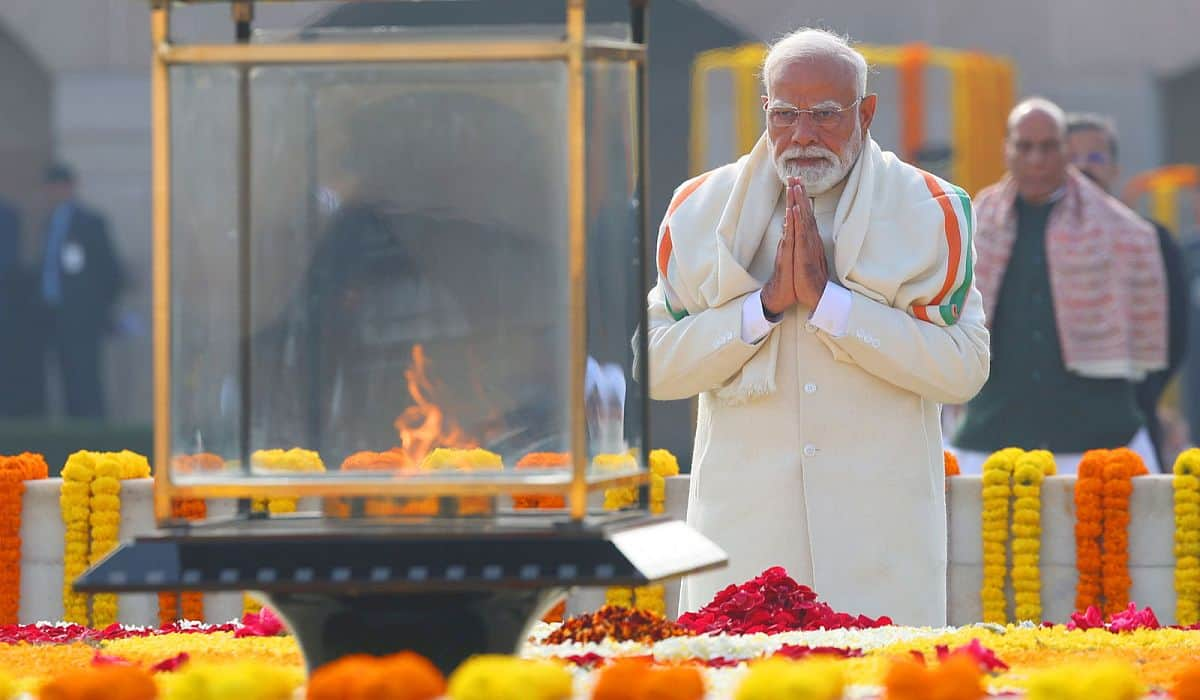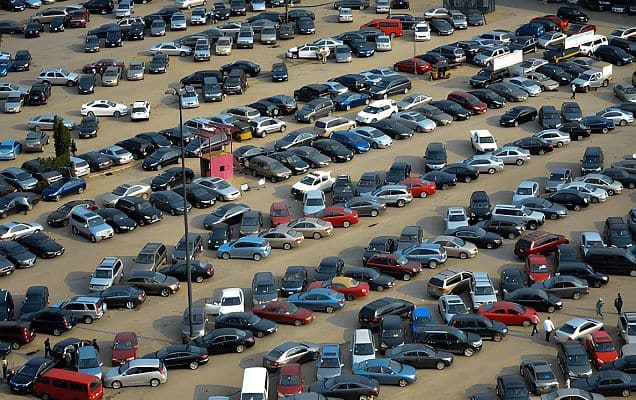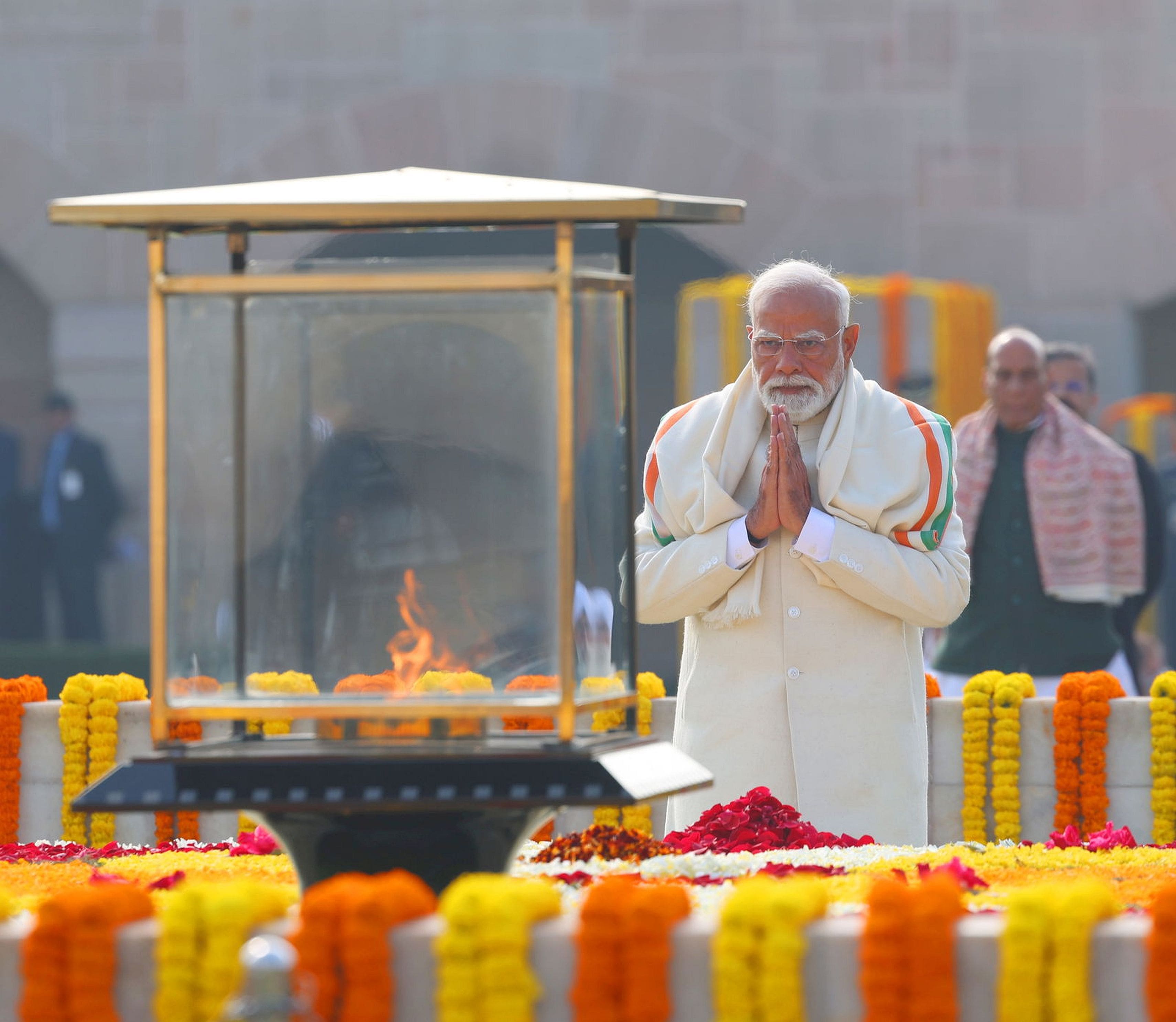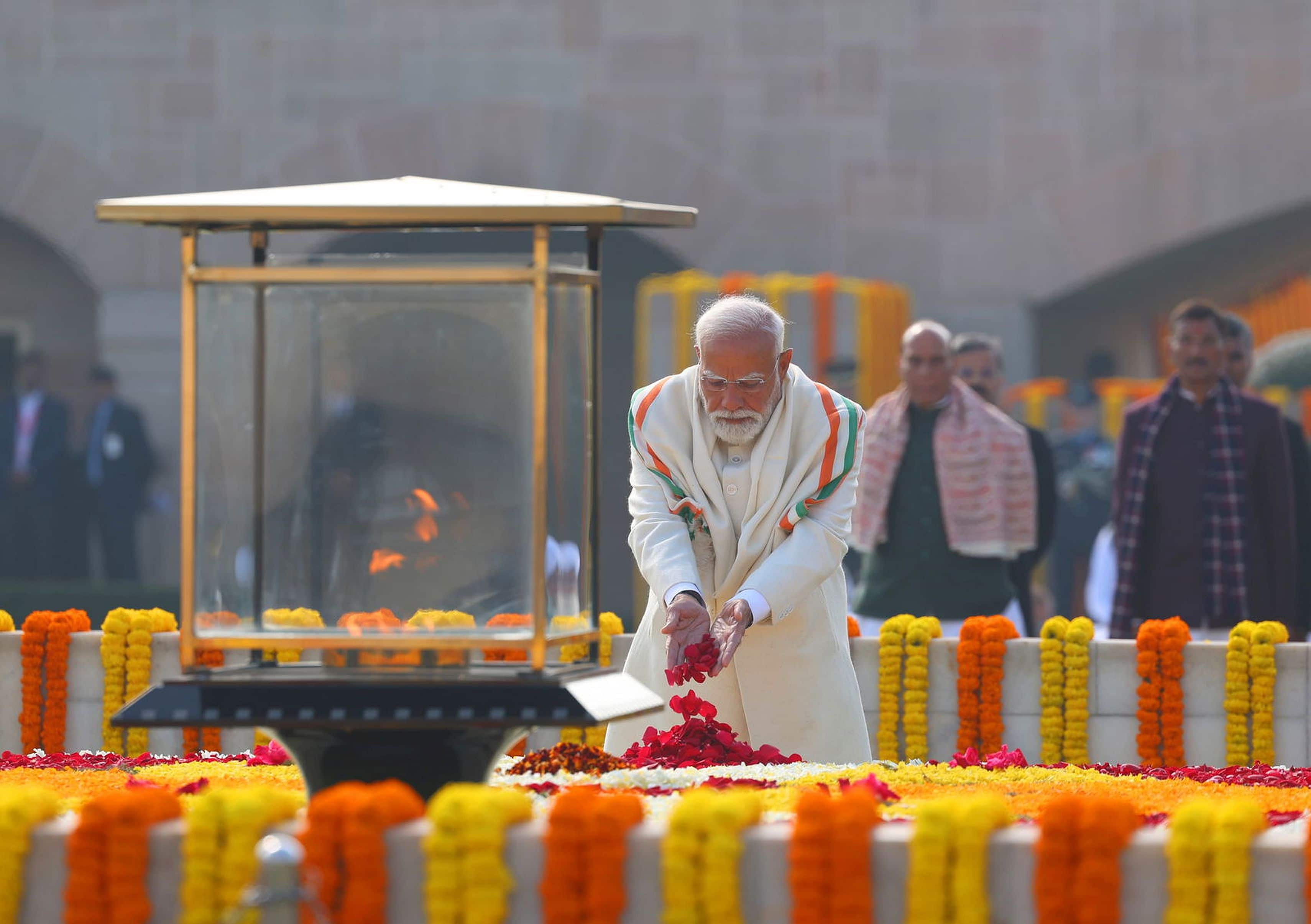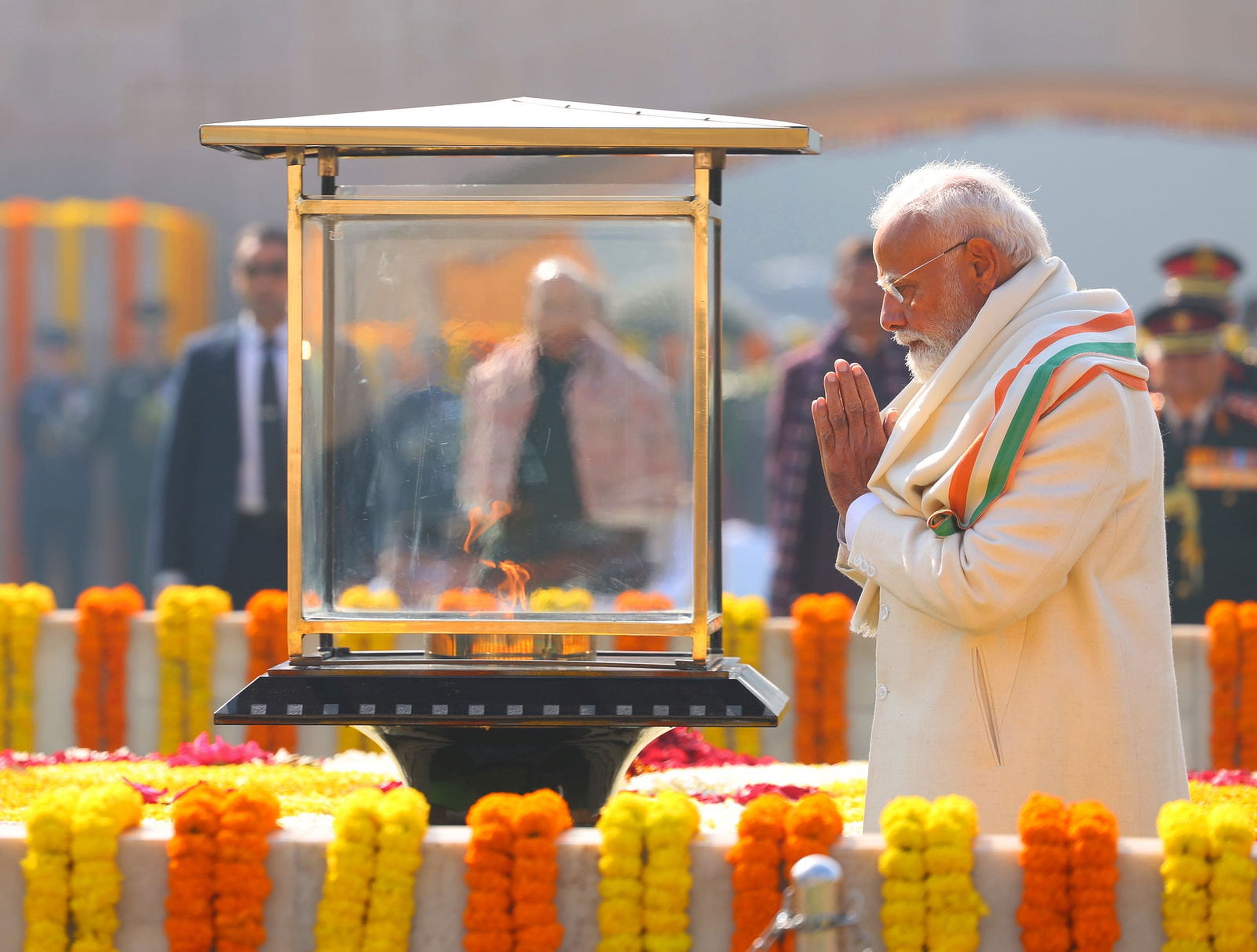The Group Editor- in- chief of Network 18 Mr. Rahul Joshi, all the journalists attached to Network 18, people attached with management, all the dignitaries present here and the viewers of Network 18!
Friends, a short while ago I got the opportunity to dedicate the National War Memorial to the nation. Look at the coincidence that immediately after that I got a chance to speak at the Rising India Summit on a subject that is very close to my heart.
I congratulate Network 18 team for choosing the subject: ‘Beyond Politics: Defining National Priorities’. In the world’s largest democracy, it is very much desirable to constantly debate and discuss what should be the direction of nation building.
Now that I am with the friends from media, I will be using your preferred methodology i.e., comparison between the past and the present. This would make it clear what were the priorities earlier; and what are the current priorities. It will also tell you that moving away from politics, national policies are being emphasized now; and the consequent results.

Friends,
Before 2014, the situation was such that the parameters that should have been rising were actually falling while the ones that should have been falling were rising.
For example, inflation! Everyone knows that the rate of inflation should be under control. But what was the reality? Under the previous government, the prices of the essential commodities were skyrocketing. Inflation was engulfing like a witch.
All of you, especially the producers in the newsroom must be aware of the 'Mehangai dayan khaye jaat' song! You must have played this a number of times in your shows.
Friends,
You must have often reported about how the inflation rate had crossed 10%. But today, our government has brought down the inflation rate to 2-4%. This difference emerges when national policies are emphasized moving away from politics.
Friends,
A similar situation was seen in terms of Income Tax. The middle class used to demand for tax concessions but had never received anything. Out government, initially, relaxed taxes for people with incomes up to Rs.2.5 lakhs and then reduced the tax slab from 10% to 5% for the people with annual income of up to Rs.5 lakhs. This time taxable income of Rs.5 lakh has been pulled out of the tax net.
Friends,
If I talk about GDP growth rate, you will clearly understand the difference between the priorities of the previous government and the present government. You must be aware of the fact that Atal ji's government had handed over an economy with a GDP growth rate of 8% to the UPA government in 2004. However, in 2013-14 while the UPA government was leaving, the GDP growth rate had plunged to about 5%.
In 2014, once again we had accepted this challenge. Once again our government has pulled it up to 7-8%. They had reduced the growth rate while we have again increased it. This is our priority.
Friends,
There was a similar situation for India at the global stage. We have been reading about it that the 21st century belongs to India. But what had happened during the UPA government's regime? By 2013, India was among the 'Fragile Five' nations. Today, once again, with the determination of the government and the hard work of the 125 crore Indians, India has become 'the fastest growing major economy'.

Friends,
The previous government had left no stone unturned in bringing bad name to the country in terms of Ease of Doing Business rankings. It was the result of the Congress culture that India's ranking fell from 132 in 2011 to 142 in 2014. Just imagine the kind of environment that was created for business at that time. But our government has improved the country's ranking to 77th position.
Friends,
During the previous government's regime, country's ranking in Ease of Doing Business was falling because the graph of corruption was also skyrocketing. Nothing was untouched by corruption from spectrum to submarine and coal to CWG. At that time every file of corruption in government was opening everywhere from the Supreme Court to the CAG and media.
Today the situation is such that the opposition goes to the court in a dubious manner and is pulled up by the court while the government is appreciated. This positive change in the government's culture has taken place during our government's regime.
Brothers and sisters,
I wish to give you a detailed example about how keeping politics away, our government is setting the priorities, linking one scheme with the other and how the system has been made smooth and transparent.
You might remember, four years back when we had started the Jan Dhan Yojana, how people had made a mockery of it. A few people used to ask, what was the big deal in getting bank accounts opened for the poor? A few people had even said that what the poor would do with a bank account when they didn't have anything to eat in the first place?
Due to this very mentality, more than half the people of India didn't have bank accounts even after so many years of Independence. Now with the efforts of our government, bank accounts of more than 34 crore people have been opened in the country.
Friends,
We have tried to link these bank accounts with Aadhaar numbers and have also made an attempt to link more and more number of bank accounts with mobile numbers too. While we were creating bank accounts, those government schemes that aimed at transferring benefits into those bank accounts were being condemned. You are well aware of the fact how earlier the money was transferred and who used to gobble up the money.
Brothers and sisters,
We continued to link every scheme with the Jan Dhan bank accounts gradually. Today the situation is such that funds of more than 425 schemes are getting transferred to the bank accounts of the beneficiaries.
During our government's regime, about Rs.6 lakh crores have been transferred to the bank accounts of the beneficiaries. And I am proud to say that unlike before when only 15 paise out of 100 paise used to reach the beneficiaries, now the entire amount is reaching to the beneficiaries.
You should also know the impact of government's efforts in controlling corruption and black money.
Friends,
As a result of linking up the Jan Dhan accounts, Aadhaar and bank accounts, the fake names on papers started surfacing. Just imagine, if there are such entities in your organization who are receiving salary but in reality are non-existent, then what would happen?
Now, the HR people will say that such a thing can never happen there. But friends, in the system created by the previous government, there were not 1 or 2 but 8 crore such fake names that were receiving the transfer of benefits from the government.
Friends,
Because of these efforts of the government, more than Rs.1 lakh 10 thousand crores were saved from going into wrong hands. When I say Rs.1 lakh 10 thousand crores are getting saved, just imagine that the same amount was going to elsewhere.
For years, this amount was going to those middlemen and those who were not the deserving it. Our government has stopped all the leakages.
Friends,
The power of bank account, data and technology has become the basis for the biggest welfare scheme of the world.
There is no scope for leakage under the Ayushman Bharat Scheme, which aims to provide free treatment to about 50 crore poor people of the country up to Rs.5 lakh. The entire amount of treatment goes directly to the hospital account. The beneficiaries have the Aadhaar numbers and their selection has been done on the basis of the Socio-Economic Survey published in 2015.
This method is being adopted for almost every welfare scheme, thereby curbing both dishonesty and leakage.
You are well aware of the fact that yesterday our government had started the Pradhan Mantri Kisan Samman Nidhi scheme. Annually, the government will transfer about Rs.75000 crores directly to the bank accounts of about 12 crore farmer families of the country to fulfil their every need like the purchase of fodder, seeds, pesticides and fertilizers. There is not possibility of any leakage even in this scheme.
Now imagine, how would a person do a fodder scam? Now the people will get a message on their mobile phones. The system of temporary bills has been ended by Modi. That's why abuses are hurled at me.
Brothers and sisters,
Those whose looting has been blocked by me are showing extreme affection to me. The way they were gathering at a single platform and hurling abuses at me, was never seen before.
Friends,
Hurling abuses at Modi is their priority. For me, the priority is to put every penny received from the taxes paid by the honest and hard working tax payers to right use.
You all are aware of the tradition here wherein the public's money was not considered to be theirs. Had it not been like that, then thousands of schemes wouldn't have remained in limbo and incomplete for decades.
Therefore, our government considers delay in schemes as a criminal negligence. I will give you 2-3 examples about how work was done during the previous decades and its impact on the lives of the people and on the taxpayers' money.
Friends,
There is an irrigation scheme in U.P called Bansagar. This scheme had started about 4 decades back. At that time it was estimated that the work would get completed at a cost of approximately Rs. 300 crores. But the project was delayed. In 2014, our government restarted the project but its cost had increased to Rs.3000 crores.
No one had stopped the previous governments from implementing these projects. I don't believe that there was a lack of funds for this Rs.300 crores worth project. Actually, there was no willingness to get the work completed. The idea was to let it get delayed. They were not losing anything.
There is another dam project - Jharkhand's Mandal dam. This too had been incomplete for the past four decades. When the project was started, its cost was Rs.30 crores. Now this dam is being completed at a cost of approximately Rs.2400 crores. That is, the honest taxpayer is bearing the burden of the 80 times cost of an incomplete project.
Brothers and sisters,
You used to be alert on hearing the news of scams. It is a good thing. But, did anyone care when due to delay in the completion of thousands of projects like this the money of the honest taxpayers like you was getting wasted? Caring for the money of the taxpayers is our government's priority. Therefore, from day 1, I have tried to end the culture of delays in the government system.
I have talked to the Chief Secretaries of every state and the secretaries of every ministry so as to ensure that there is no delay in any project at any cost. The taxpayers' money should not go waste. Friends, I have personally reviewed the old projects of more than Rs.12 lakh crores.
Friends,
Most of the projects that were reviewed through PRAGATI belonged to East India and the Northeast. This has been a major priority for our government. Making the Eastern India a growth engine for New India is an important aspect of our vision of 'Sabka Sath Sabka Vikas'.
You must have made reports on how for the first time after decades, the Eastern and North-eastern India are connected to railways. For the first time airports are being constructed there and electricity is being supplied.
Friends,
We are trying to ensure that every section of the society or the country, which was feeling neglected for some reason, should be reached out to, and efforts should be made to address its concerns.
Be it the decision of 10% reservation for the general category poor or the historic scheme of pension for workers; be it the decision to set up a Welfare Development Board for the nomadic community or a separate department for the country's fishermen, we are working on the mantra of 'Sabka Sath Sabka Vikas'.
Our priority to reach out to every person, every class and every corner of the country for development is becoming the cause for New India's new confidence.
With this confidence, I would like to talk to you about your favourite topic - employment.
I have been told that since 2014, no one has got a job in the Network 18. Rahul Ji, this information is correct, right?
Do not be surprised. I am trying to frame the answer to this question.
Brothers and sisters,
Just think about it; when India has become the fastest growing economy of the world, is it possible that this is done without creating job opportunities?
When FDI in the country is at an All-Time High, is it possible that jobs are not being created?
When several international reports are saying that India is eliminating poverty at a rapid rate, is it possible that people are coming out of poverty without jobs?
Just think about it! Is it possible that jobs have not been created when the work on construction of roads, expansion of railways is going on at several times faster rate than before; when lakhs of houses are being constructed for the poor; new bridges, dams, airports and other infrastructure related projects are getting completed in record time and when investment in the field of tourism is increasing?
You must have seen doctors, engineers and chartered accountants making progress around you. As per the statistics of the Income Tax department, during the last four financial years, 6 lakh professionals have been added to the system. Each of these professionals would also need supporting staff. In such a scenario, we can make an estimate that these professionals would have given jobs to lakhs of people during the last four years.
Moreover, the cars running on roads too paint a different picture. Someone was telling me that in your Film city, Noida, earlier there used to be a lot of empty spaces. But now, there is no space even for parking vehicles.
What I mean is, over the last 5 years, there has been a boom in the transportation sector. Approximately 7.5 lakh commercial vehicles have been sold last year. Is it possible that so many commercial vehicles are being sold without jobs?
Consider the Pradhan Mantri Mudra Yojana. I have seen several inspiring stories in the media regarding it. I have also met most of the beneficiaries and have heard their success stories. How they had started their businesses after taking loans and now how they are providing jobs to dozens of people.
Friends,
Loan of more than Rs. 7 lakh crore has been given to more than 15 crore entrepreneurs under this scheme. You would be surprised to know that more than 4 crore young entrepreneurs are those who have taken loan for the first time for their business. Is it possible that such a large number of small entrepreneurs have been given loan and people have not got employment?
Friends,
The government also receives comprehensive information from the EPFO regarding employment. As far as EPFO is concerned, part of money of crores of people is getting deducted, and this contribution is getting accumulated. That's how we get these figures. It is not that statistics are being collected after surveying only one thousand or 10 thousand people. Between September, 2017 and November 2018, approximately 5 lakh subscribers have been added to the EPFO every month. Similarly, about 10 to 11 lakh subscribers have been added every month to Employees’ State Insurance Corporation i.e. ESIC.
Even if we consider it to be a 50 per cent overlap with EPFO's statistics, even then about 10 lakh people have joined the formal workforce every month. That is, 1 crore 20 lakh jobs per year.
Friends,
In the last 4 years, there has been a historic increase of 45 per cent in the number of foreign tourists. The Foreign Exchange earnings from tourism have also increased 50 per cent in the last 4 years. Besides, there has been a historic increase in the aviation sector of India. More than 10 crore people travelled by air during the last year. Didn't these factors generate employment opportunities?
These figures clearly show that there are employment opportunities in every field in the country and people have got jobs.
Probably many people don't want to believe in what Modi is saying. But remember what the West Bengal government is saying - it has created 9 lakh jobs last year and 68 lakh jobs between 2012 and 2016. The Government of Karnataka says that in the last five years, 53 lakh jobs have been created in the state.
Is it possible that there are opportunities for jobs in West Bengal and Karnataka but not in India?
Friends,
I believe that still a lot needs to be done in terms of employment within the country. But with the pace and the direction in which we are moving, I believe that India will emerge as an example before the world for jobs.
Friends,
The role of media in creating a New India and empowering it is very crucial. Exposing the limitations of the government and the system is your natural right but further strengthening the environment of positivity within the country too is your responsibility.
I thank you for playing your positive role in a responsible manner! You have raised public awareness in relation to the reforms related to the society and system with complete sincerity.
I believe that your role in New India's rise is going to be stronger and more empowering.
Finally, thank you all for organizing this summit and inviting me here.
Thanks!!!






